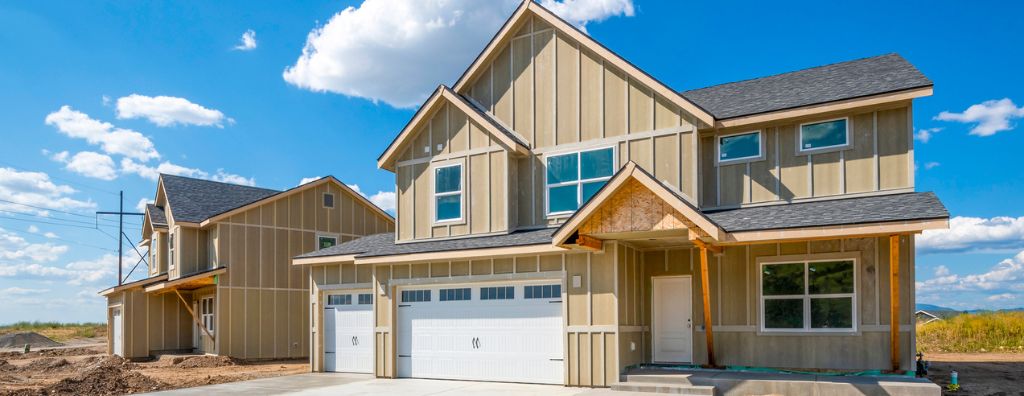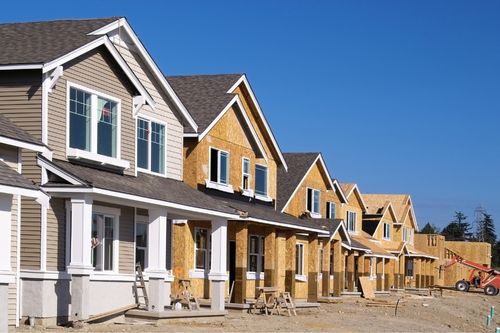Savory Chicken Crepes

Simple Tips to Make Your Move Easier

Your needs as a homeowner change over time, and you need the right home to fit those needs. Accordingly, it’s highly likely that at some point in your future you will experience another moving day. While moving can be challenging, the following moving tips will make it easier. If you are remaining in your current area, your Windermere agent can continue to be a valuable resource on schools, utilities, transportation, recreational opportunities, and more.
If you are moving out of the area, your agent can help you with a referral to another reputable agent in your new community. Many agents also have relationships with real estate-related service companies in their area whom they can call upon for information regarding title, escrow, mortgages, temporary housing while you sell your home, and moving services. They can also help guide you in your search as you learn more about new communities and relocation services.
Helpful Moving Tips
Once you have decided to sell your home, it’s time to gather information and get organized. Begin by creating a “moving” file to keep track of your estimates, receipts, and other pertinent information. If you’re moving for a job, some expenses may be deductible, so you’ll want the paperwork when tax time comes.
If you are moving out of the area, start researching your new community and ask your agent for help in finding a referral agent. You’ll also want to determine whether you want to rent first or buy immediately. Your new agent should be able to help you with your decision. Once you know where you’re going, you’re also ready to get estimates from moving companies.

Image Source: Getty Images – Image Credit: svetikd
Moving to Your New Home
After you have chosen a moving date and either hired a moving company or reserved a rental truck, it’s time to wrap things up in your old neighborhood and start establishing relationships where your new home is located. This is particularly important if you are moving to a new town/city. You may want to ask your current doctors, dentists, etc. if they have any referrals on care providers in your new location. Be sure to check their recommendations on your insurance company’s online provider search list. Once you arrive, you may also want to ask new coworkers, friends, or the school nurse for their recommendations.
Contact your children’s school and/or day care and arrange for their records to be transferred. Call your insurance agent about homeowners insurance coverage. Remember to contact utility companies to disconnect, transfer or end service in your current home and turn on service in your new home.
You’ll want to file a change of address form with the U.S. Postal Service, either online or at your local office. If you don’t know your new address, have them hold your mail at the post office in your new locale. Don’t forget to cancel or transfer magazine and newspaper subscriptions as well.
If you belong to a health club or other association, contact them about ending or transferring your membership. Some clubs require written notice before cancellation. Finally, contact your bank or credit union to transfer or close accounts; if you have a safe-deposit box, don’t forget to clean it out before you leave.
Preparing for Moving Day
With moving day in sight, it’s time to get organized. Here are a few moving tips to check off your list before you start packing:
- Tie up loose ends. Be sure to send out an email or change of address cards with your new contact information to family, friends, and associates. Return library books and any other borrowed items you may still have.
- Triage your possessions. Determine what you are taking with you, what you are giving away to friends, family, or a favorite charity, and what is going to the dump or recycling center. If you have time, you can hold a garage sale or post items for sale online.
- Clean up. Drain all gas and oil from your mower, other machinery, gas grills, kerosene stoves and lamps, etc., before loading them onto a moving truck. Empty, defrost, and clean your refrigerator at least 24 hours before your move, and prepare other appliances for moving as well.
- Have your car serviced. This is especially important if you are driving to your new home.
Moving Tips: Packing Strategies
If you are doing your own packing, start collecting boxes and/or buy them from your movers. It may take a few days to do your packing, so be sure to pack non-essential items first and label them carefully. If you have any valuables, it’s recommended that you take them with you as opposed to packing them. You risk the chance of losing those items if they’re packed away in boxes. It’s also smart to take along a box of essentials, including items such as toilet paper, paper towels, tape, soap, scissors, pens, paper, and your toiletries. That way you won’t have to track these items down once you’ve arrived in your new home.
For more information on how to make your move easier, visit our Moving Checklist here:
How to Declutter Before Selling Your Home

To sell your home for the best price, it needs to be in pristine condition. You’ll work with your agent to identify high-ROI remodeling projects and various ways to improve the property, but all that is a moot point if you don’t declutter before selling your home. Here are some helpful tips to get started.
Declutter Before Selling Your Home
Getting your home cleaned up and organized is a precursor to capturing appealing listing photos and having successful open houses. You’ll be opening your doors to crowds of interested buyers, and it’s essential that your home feels like a place they want to live. Decluttering will also get you prepared for home staging, whether you’re hiring a professional or staging your home DIY. All these preparatory measures work together to make your home as appealing as possible to a wide pool of buyers.
Decluttering also helps to kickstart the transition of moving out. Homeowners are attached to their homes, and the selling process can bring a lot of those emotions to the surface. By going through your home room by room, sorting through your possessions and paring them down, you’re simultaneously beginning to process the life changes in your near future. Plus, by getting an early jump on organizing your home, it will make moving day a whole lot easier.
For buyers, space equals opportunity, so a tidy, uncluttered home allows them to fill it with their imagination. As such, it’s crucial that buyers see decluttered, spacious areas when they walk into your home or browse through listing photos online.

Image Source: Getty Images – Image Credit: miodrag ignjatovic
How to Declutter Your Home
Take a deep breath; your decluttering doesn’t have to get done all in one sitting. Tackle your home room by room, taking stock of items as you go. The tried-and-true home organization method of keeping boxes labeled “donate,” “keep,” and “throw away” applies here. Separating items by their destinations will help you reduce piles of clutter in no time.
To properly declutter before selling, consider your moving timeline. Between your discussions with your agent and your preparations for your next home, moving day can go from a seemingly distant point in the future to tomorrow in a hurry. Planning a yard sale can help to give yourself a specific deadline by which you need to have finished giving the house a clean sweep.
Emphasize tidiness in small and narrow areas such as hallways, closets, and storage rooms and consider hanging mirrors to make these areas feel less cramped. These little tricks of the trade can help to give the impression that even the spatially limited areas of your home feel bigger. Scrub, wash, and dust the house top to bottom, even the commonly missed cleaning spots. A home that’s sparkling clean is more welcoming to buyers.
Talk to your agent about additional preparations that will put your home in the best position to sell. Your agent knows what buyers in the area are looking for, so lean on them for advice as you get ready to hit the market. For more information on how to get your home ready to sell, visit our selling guide:
How to Reduce Your Interest Rate: Mortgage Buydowns

When mortgage rates are up, prospective buyers can often feel like they’re at a disadvantage as they go about securing a home loan. Fortunately, there are ways to lower your interest rate to make your monthly mortgage payments more affordable.
What are mortgage buydowns?
A mortgage rate buydown is a form of financing that allows you to secure a lower interest rate on your mortgage by paying more money upfront in the form of discount points, also known as mortgage points, at closing. Each discount point is equal to one percent of your total loan amount. Especially attractive in times of high mortgage rates, buydowns are offered by sellers, builders, or lenders depending on the transaction. There are two main types of mortgage interest rate buydowns: permanent and temporary.
Permanent Mortgage Buydowns
With a permanent interest rate buydown, typically the borrower, seller, or builder will contribute to the cost of buying down the rate permanently. In this situation, the borrower qualifies at the bought-down rate for the life of the loan.
Temporary Mortgage Buydowns
A temporary interest rate buydown provides cash flow for the borrower during the temporary period, but they still qualify at the higher note rate. Typically, the seller or builder will contribute to the cost of buying the rate down temporarily.
Use our Home Monthly Payment Calculator to experiment with different down payments, principal amounts, interest rates, taxes, and more for any listing price.
How do temporary mortgage buydowns work?
Temporary mortgage interest rate buydowns have their own unique structure. Below are three common types:
- 1-0 Buydown Mortgage: The borrower gets a 1% discounted interest rate for the first year.
- 2-1 Buydown Mortgage: The borrower gets a discounted interest rate for the first two years of the loan. The first year, the interest rate is 2% lower, decreasing to 1% lower the second year.
- 3-2-1 Buydown Mortgage: The borrower gets a 3% discounted rate the first year, dropping to 2% in the second year and 1% in the third year.
Although they share certain characteristics with adjustable-rate mortgages (ARMs), temporary mortgage buydowns are slightly different. ARMs initially have a fixed interest rate period. Once the adjustable-rate period kicks in, both the interest rate and monthly payments are subject to change. With buydowns, the buyer’s interest rate doesn’t change; either the seller or lender covers part of the interest payments as outlined by the buydown’s structure.

Image Source: Getty Images – Image Credit: kate_sept2004
Should I permanently buy down my mortgage?
Though buying down your mortgage interest rate permanently can make the payments more affordable, if you are contributing to this cost, make sure you can withstand the heavier financial load before proceeding. It also depends on how long you plan to live in the home. For example, if you plan to move shortly after buying, the short-term savings on your mortgage may not yet break even on your upfront costs by the time you’re ready to purchase again.
Pros of Mortgage Buydowns
- Savings on monthly mortgage payments
- A lower rate means you could qualify for a higher loan
- Discount points = prepaid mortgage interest, which is often tax-deductible
Cons of Mortgage Buydowns
- Higher upfront costs of buying a home
- If payments increase, higher risk of foreclosure
- Less cash available for remodeling, home improvements, etc.

Image Source: Getty Images – Image Credit: cnythzl
How much can I save with a mortgage buydown?
Here’s an example of the savings you could see with a 3-2-1 temporary mortgage buydown. Let’s say you qualify for a 30-year mortgage with a $400,000 loan amount at an interest rate of 7%. With a 3-2-1 buydown, you’d pay a 4% interest rate the first year, 5% the second year, and 6% the third year. From year four on, you’d pay 7%.
| Purchase Price | Down Payment | Loan Amount | Interest Rate | APR | Loan Term |
| $500,000 | $100,000 | $400,000 | 7% | 7.125% | 30 years |
3-2-1 Temporary Mortgage Interest Rate Buydown
| Year 1 | Year 2 | Year 3 | Years 4-30 | |
| Interest Rate | 4% | 5% | 6% | 7% |
| Number of Payments | 12 | 12 | 12 | 336 |
| Monthly P&I Payment | $1,909.66 | $2,147.29 | $2,398.20 | $2,661.21 |
| Total PITI Payment | $1,909.66 | $2,147.29 | $2,398.20 | $2,661.21 |
| Monthly Reduction | $751.55 | $513.92 | $263.01 | – |
- Calculations provided by Penrith Home Loans
- Temporary buydown cost as % of purchase price 3.67%
With this structure, you’d save $9,018.60 the first year, $6,167.04 the second, and $3,156.12 the third, for a total three-year savings of $18,341.76.
Thinking about buying a home? Connect with a local, experienced Windermere agent to begin your home buying journey:
Buying a New Construction Home

You’ve got several options to choose from when buying your next home. With existing homes, it’s in sellers’ best interest to spruce up their properties, so they’ll usually complete some kind of upgrades, curb appeal projects, and remodeling before hitting the market. A new construction home, however, has no previous owner; it comes brand new. Learning about the new construction buying process will help you understand how it differs from other types of housing, such as existing single-family homes, townhouses, condominiums, etc.
What is a new construction home?
New construction homes are kick-started from two primary sources: the homeowners themselves and developers. When a homeowner is having a home custom built, they work with contractors to build it to their desired specifications on a lot they’ve purchased. This tailored approach comes at a price; building a custom home generally costs more than purchasing a new build from a developer.
When going the developer route, buyers have options to choose from, namely tract homes and spec homes.
Tract homes make up new neighborhoods on land bought by the builder. They bear a strong resemblance to each other but may offer customizable floor plan and design options to tailor the home to the buyer’s liking.
Spec homes are finished, move-in-ready new builds. Though they offer little to no customization, they may be the right option for you if you’re looking to move right away.
There are four component parts of building a new construction home: land, labor, materials, and regulation. Builders combine those costs to determine what price they need to sell the home to make a profit, accounting for local real estate market trends. However, if the market is driving up those costs, builders are less likely to continue building. As a buyer, keeping tabs on the housing market will help you understand the landscape of available new construction homes.

Image Source: Getty Images – Image Credit: jhorrocks
Pros of a New Construction Home
- New materials, appliances, and fixtures
- Customization without having to remodel
- Less maintenance than an older home
Cons of a New Construction Home
- Custom home costs can be high
- Move-in date dictated by builder’s timeline
- Market conditions can drive up prices/halt production
Buying a New Construction Home
The financial preparations you’d take for purchasing an existing home apply to buying a new construction home. You’ll get pre-approved for a mortgage early on and form a saving strategy for how to make a down payment.
There’s less room for negotiation in new construction home transactions, so you and your agent should thoroughly discuss what kind of offer you’re able to make. Your agent is your greatest asset during this part of the process; lean on them to understand how to make an offer. You’ll also want to know whether a home warranty comes with the purchase of the new construction home and its cost structure.
Even though these homes are brand new, it’s still worth it to get a home inspection to discover any outstanding repairs that need to be made and begin a dialogue with the builder about fixing them before you move in.
Going into the buying process, it helps to know which new construction homes you’re able to afford. This allows you and your agent to work together to find the best candidate properties. To get an idea of what’s affordable, use our free Home Monthly Payment Calculator by clicking the button below. With current rates based on national averages and customizable mortgage terms, you can experiment with different down payment amounts to get estimates of your monthly payment for any listing price.
Rosemary Bread

You will love this super simple and delicious bread recipe from Monti’s Restaurant in Tempe, Arizona. The iconic steakhouse closed down years ago, but I used to love going there especially for the bread! This recipe has been in the Monti family for many years. In fact, Mr. Monti’s parents brought it over from Italy with them, some eighty years ago. I hope you enjoy it as much as I do!
INGREDIENTS
- 2 1⁄4teaspoons yeast (1 Package)
- 1 1⁄2cups lukewarm water (100 degrees)
- 4cups flour
- 1tablespoon granulated sugar
- 1⁄2cup finely chopped onion
- 2teaspoons salt
- dried rosemary salt to sprinkle on top
DIRECTIONS
- Add Sugar and yeast to lukewarm water and stir to dissolve yeast.
- Add flour, salt and onion.
- Knead until smooth.
- Place dough in an oiled bowl and let rise until double in size.
- Punch it down, flatten out dough on an oiled cookie sheet to about an inch thick.
- Lightly oil the top of the bread and sprinkle with salt and dried Rosemary.
- Bake at 400 degrees for 20 to 25 minutes. Serve hot.
Deciding to Sell Your Home

Deciding to Sell Your Home
Once you know it’s time to sell your home, it’s natural to feel a wave of emotions. A home is an integral part of a homeowner’s life. They provide countless memories and, for many homeowners, are their greatest investment. But once you’ve decided to sell, it’s important to look at your home with an objective eye to appeal to a wide variety of buyers.
Which repairs should I make before selling my home?
To get your house in top selling shape, identify its outstanding repairs. As you fill out your list, separate the projects into categories which are DIY-eligible and which require a professional. This will help you to budget for your overall repair expenses and build a reasonable timeline. Some of the most important repairs to make before listing your home include fixing appliances, making sure your sinks and faucets work properly, repairing any cracks or holes in the walls, fixing all leaks and water damage, and ensuring that all systems in the home are functioning properly. Making repairs before you list your home will bode well for home inspections, negotiations, and can even give your home an advantage over other listings. Your agent may suggest a pre-listing inspection to make your home more competitive in a seller’s market.
Which upgrades should I make before selling my home?
When you sell your home, you’re inevitably competing against other listings in your area. The aesthetics of a house play a significant role in its ability to catch buyer’s attention, which emphasizes the importance of improving your curb appeal as you prepare to hit the market. Landscaping projects, new exterior paint, and upgrading your front entry are just a few ways you can spruce up the outside of your home.
And what about the interior? Consider upgrading to energy-efficient appliances, which are known for their high ROI potential. This is a great time to repaint your home’s interior as well. Consider using a neutral color palette to make it as appealing as possible to a wide-array of buyers. It’s also a good idea to identify rooms in which the flooring should be replaced or repaired. When remodeling your home’s flooring, choose a material that is within budget and has good resale value.
- High ROI Remodeling Projects to Increase Home Value
- Remodeling Projects to Avoid When Selling Your Home
Working With an Agent
Listing agents are trained professionals who work with homeowners to sell their homes. Your listing agent will be there to answer any questions you may have throughout the selling process and will negotiate with buyer’s agents to get the best price for your home. But their value doesn’t stop there. A listing agent will list the home, coordinate showings and open houses, and market the home. When searching for a real estate agent, find someone with whom you are compatible both emotionally and professionally, and who cares about the goals of you and your household.
What’s my home worth?
Homeowners can get a general idea of how much their home is worth by using online home value estimators, like Windermere’s free Home Worth Calculator. Though these tools can provide some context behind the value of your home, nothing compares to the in-depth analysis of an agent’s Comparative Market Analysis (CMA). Using a CMA, an agent can accurately price your home to get it sold quickly.
Featured Image Source: Getty Images – Image Credit: Inside Creative House
Homeownership Terms to Know: Pre-Approval, Pre-Qualification & More

Pre-Qualification and Pre-Approval
What is pre-qualification?
Pre-qualification and pre-approval go hand in hand, but one precedes the other. Pre-qualification is a very early step in the home buying process leading to pre-approval. After sharing your financial information with your bank or lender, they’ll give you an estimate of the loan amount you can expect to qualify for. During this time, you’ll learn about the different home loans available to you to help you decide which is best. Pre-qualification usually only takes a few business days.
What is pre-approval?
A sibling to pre-qualification, pre-approval takes things a step further. Once you submit a mortgage application, you’ll provide your lender with the required information to perform a financial background check to assess your creditworthiness. You’ll get a pre-approval letter showing the lender’s offer of a specific loan amount, so you’ll know how much you can borrow. You’ll also get a better understanding of what interest rate you can expect to pay on your loan. Mortgage pre-approvals are typically valid for 60 to 90 days.
More information on the benefits of pre-approval and when to get pre-approved:
Once you’ve gone through the pre-approval process, it’s helpful to know which homes you can afford. Use our free Home Monthly Payment Calculator by clicking the button below. With current rates based on national averages and customizable mortgage terms, you can experiment with different values to get an estimate of your monthly payment for any listing price.

Image Source: Getty Images – Image Credit: Thitiphat Khuankaew
What is a proof of funds letter?
Simply put, in real estate, a proof of funds letter is a document that proves to the seller that you have enough money available to purchase the home. Proof of funds letters may vary depending on the terms of the transaction. For example, if you’re making an all-cash offer, your letter will prove that you have enough liquid cash to complete the deal.
For more information on the home buying process, read our blog post on searching for a home:
How to Search for a Home: Buying Guide
Featured Image Source: Getty Images – Image Credit: mixetto
Renting vs. Buying a Home: The Financial Benefits of Homeownership

Renting vs. Buying a Home
One of my followers asked me about some of the financial benefits of owning your home as opposed to renting. I find this topic interesting as there really is a “laundry list” of reasons that, from a financial standpoint, owning a home is better than renting.
I’m Matthew Gardner Chief Economist at Windermere Real Estate and welcome to this month’s episode of Monday with Matthew. Let’s get to the topic at hand. Of course, I don’t have time to go through them all today but here are the ones that I think are the most compelling: wealth building and tax benefits.
The Financial Benefits of Homeownership
The first thing to understand is that, over time, a mortgage becomes easier to afford. You see, when you buy a home, the mortgage payments themselves don’t change and, over time, your earnings rise but the mortgage payment doesn’t. Simply put, unlike renters who generally see their rents going up every year, your mortgage payment never will and because you’ll hopefully be making more money as time goes by, the share of your income that you spend on a mortgage payment becomes less & less.
The next advantage to owning your home is that it is a good long-term investment. Of course, some will say that this is not the case because we went through the housing bubble bursting back in 2006 but there have actually been very few times in history when home prices have seen any long-term downward adjustment.
Now I know some will say that investing in stocks would give you a higher long-term return. My response to that would be I’ve never seen anyone living under a stock certificate. Have you?
My next reason for believing that ownership is better than renting is rather simple, and that is because a portion of every mortgage payment you make goes toward reducing the principal amount of the loan. Of course, during a majority of the term of the mortgage most of the payment is going towards interest but, a small portion is paying down the debt itself—in essence making it a forced savings plan, building wealth along the way.
Tax Advantages of Owning a Home
But what about the tax advantages? Owning a home offers unique and substantial ways to save on your taxes every year. Firstly, you can deduct your real estate taxes every year. Now, tax reform has limited the total allowed deduction, but it is still meaningful. You can also deduct the interest you pay on your mortgage. Again, there are some limitations but, depending on where you live you could save a significant amount.
And finally, let’s talk Capital Gains Taxes. When you sell your primary residence and have seen its value grow since you purchased it, up to $250,000 of that profit (if you’re a single person) or $500,000 if you’re married and filing jointly is tax free. Now, this is only true if you meet certain requirements with the biggest one being that you have to have lived in the house for a minimum of two years during the preceding five-year period.
If that’s not enough to convince you that there are very significant advantages to owning a home over renting, I will leave you with one last datapoint that you may find of interest.
Renting vs. Owning a Home: Household Net Worth
Using Federal Reserve data as a base, I’ve been able to calculate the median net worth of a household in America who owned their homes versus a household that rents.
- In 2022, the median household wealth of a homeowner household here in America was approximately $330,000.
- The median household wealth for a renter household in this country last year was just $8,000.
As you can see, that’s quite the discrepancy between the two. I think it’s very clear that homeownership for a vast majority of families is how they create most of their wealth.
I hope you found this topic of interest. Of course, if you have any questions or comments please do let me know as I do enjoy hearing from you. Take care and I look forward to talking to you all again next month.
Data combined and calculated by Windermere Economics
About Matthew Gardner
As Chief Economist for Windermere Real Estate, Matthew Gardner is responsible for analyzing and interpreting economic data and its impact on the real estate market on both a local and national level. Matthew has over 30 years of professional experience both in the U.S. and U.K.
In addition to his day-to-day responsibilities, Matthew sits on the Washington State Governors Council of Economic Advisors; chairs the Board of Trustees at the Washington Center for Real Estate Research at the University of Washington; and is an Advisory Board Member at the Runstad Center for Real Estate Studies at the University of Washington where he also lectures in real estate economics.
What’s a Home Warranty and Why Do You Need One?

To be a homeowner is to understand that things can change at a moment’s notice. It’s only a matter of time before the systems in your home break and your appliances are on the fritz. But this inevitable truth isn’t meant to be all doom and gloom. Fortunately, you can protect yourself against these events with a home warranty.
What is a home warranty?
A home warranty and homeowners insurance both protect homeowners against unexpected events. A standard homeowners insurance policy typically covers your home, your belongings, injury, or property damage to others, and living expenses if you are unable to live in your home temporarily because of an insured disaster.
The policy likely pays to repair or rebuild your home if it is damaged or destroyed by disasters, such as wildfires, a winter storm, or lightning. Your belongings, such as furniture and clothing, are also insured against these types of disasters, as well as theft. Some risks, such as your home flooding, are routinely excluded from homeowners insurance policies.
A home warranty picks up where homeowners insurance leaves off by covering some or all of your HVAC, electrical systems, plumbing, and major appliances. A home warranty contract pays for the repair costs associated with these household items. However, if something in your home has not been properly maintained, your home warranty likely won’t cover it. Clarify the specifics of your policy’s language regarding proper maintenance with your warranty provider to avoid potential disagreements. Most home warranties are good for one year with the ability to renew annually.
What does a home warranty cover?
Home warranty policies vary by provider and location. Different coverages offer different protections among your home’s systems and appliances, or a combination of the two. Fees vary as well, based on your plan’s coverages and applicable service fees.

Image Source: Getty Images – Image Credit: PeopleImages
Why do you need a home warranty?
Home warranties have several benefits both for buyers and sellers. For buyers, you can rest assured that your appliances are covered if and when they break down. This saves you from unexpected repair bills from having to hire a contractor. And when selling your home, a home warranty can serve as a way to differentiate your property over other listings. When buyers know a home is protected with a warranty, they can buy with confidence.
Finding the Right Home Warranty
As with anything in the home buying or selling process, it’s important to shop around when searching for the right home warranty policy. During your discovery process, ask questions about the policy’s costs, its dollar amount limit, which items it covers, and its applicable fees including service calls. Talk to your agent about trusted warranty providers in your area.
For more information on protecting your home, visit the Living section on our blog:
Featured Image Source: Getty Images – Image Credit: Pekic
 Facebook
Facebook
 X
X
 Pinterest
Pinterest
 Copy Link
Copy Link
